Smart Electric Vehicle Technical Education - Powering the Green Revolution
The automotive landscape is witnessing an unprecedented shift, with electric vehicles (EVs) heralding a new era of sustainable transportation.
6 min read
 Ranvijay Parmar
:
October 8, 2023
Ranvijay Parmar
:
October 8, 2023
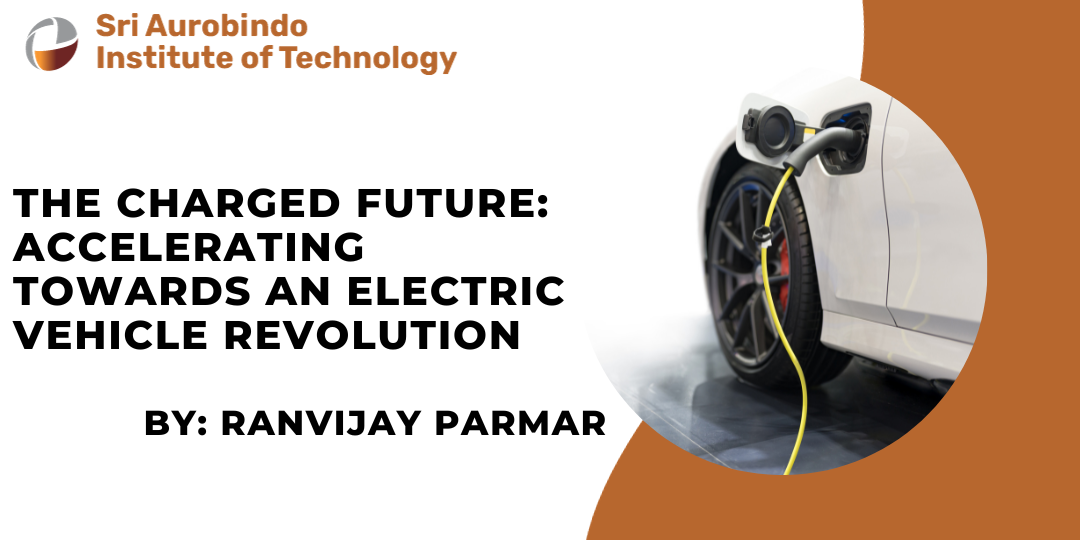
Electric vehicles have come a long way in recent years. They are no longer just a pipe dream for environmentalists or tech enthusiasts - they have become a viable alternative to traditional gas-powered vehicles.
The future of transportation is electric, and it's not a matter of if, but when. With the rapid advancement of technology, government incentives for cleaner vehicles, and growing environmental concerns, electric vehicles are becoming more accessible and affordable for the average person.
In this post, we'll explore the current state of the electric vehicle market, including popular models, charging infrastructure, and government incentives.
We'll also look at what the future holds for electric vehicles, including advancements in battery technology, self-driving capabilities, and the development of more affordable models. Get ready to learn why the electric vehicle revolution is charging full speed ahead!
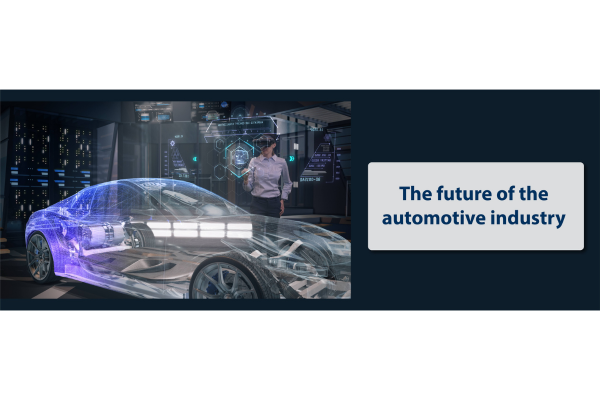
The world is witnessing a paradigm shift in the automotive industry as electric vehicles (EVs) gain unprecedented momentum. With concerns over climate change, rising fuel prices, and the need for sustainable transportation, the shift towards EVs is not just a trend but a necessity.
The benefits of electric vehicles go beyond reducing carbon emissions. They offer quieter rides, lower maintenance costs, and the potential for energy independence by utilizing renewable energy sources for charging. As technology continues to evolve, the range anxiety commonly associated with EVs is diminishing, making them a viable option for daily commuting as well as long-distance travel.
Major automakers are investing heavily in EV production, with several unveiling ambitious plans to transition their entire lineup to electric vehicles in the coming years. This surge in investment is driving advancements in battery technology, charging infrastructure, and vehicle design, making EVs more accessible and appealing to a wider audience.
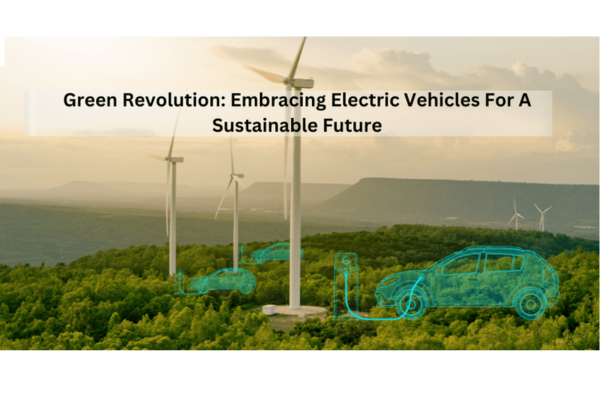
With advancements in technology and a growing infrastructure to support them, there are numerous advantages to owning an electric vehicle.
Firstly, one of the most significant advantages of EVs is their positive impact on the environment. Unlike traditional gasoline-powered vehicles, electric cars produce zero emission at the tailpipe.
This means they do not contribute to air pollution, reducing greenhouse gas emissions and improving overall air quality. By choosing an electric vehicle, you are actively participating in the fight against climate change and promoting a cleaner, greener planet for future generations.
Another major advantage of electric vehicles is their cost-effectiveness in the long run. Although the initial purchase price of an electric car may be higher than a conventional vehicle, the savings in terms of fuel and maintenance expenses can be substantial.
Electric vehicles require significantly less maintenance as they have fewer moving parts, eliminating the need for oil changes and engine tune-ups. Additionally, the cost of electricity to power an EV is generally much lower than the price of gasoline, resulting in significant savings over time.
Furthermore, electric vehicles offer a smoother and quieter driving experience. Electric motors provide instant torque, delivering quick acceleration and a responsive driving performance. This not only enhances the overall driving experience but also contributes to a more enjoyable and comfortable ride.
Moreover, the absence of internal combustion engine eliminates engine noise, making electric vehicles much quieter than their gasoline counterparts.
Lastly, the expanding network of charging stations is making electric vehicles increasingly convenient to own and operate. With more charging stations being installed in public areas, shopping centers, and workplaces, the fear of running out of battery power is gradually diminishing.
Additionally, advancements in charging technology are reducing charging times significantly, making it easier than ever to recharge your electric vehicle on the go.
From positive impact on the environment and cost-effectiveness to their superior driving experience and convenient charging options, electric vehicles are undoubtedly driving us towards a cleaner, more sustainable future.

Government policies play a crucial role in driving the electric vehicle (EV) revolution. As the world increasingly recognizes the need for sustainable transportation solutions, governments are stepping in to incentivize the adoption of EVs and create an environment conducive to their growth.
One of the most significant ways in which government policies are promoting the EV revolution is through financial incentives. Many countries offer tax credits, rebates, and grants to individuals and businesses that purchase or switch to electric vehicles. These incentives help offset the higher upfront costs of EVs, making them more affordable and attractive to consumers.
Apart from this, governments are implementing stricter emission regulations and fuel efficiency standards, pushing automakers to invest in electric vehicle technologies. These regulations act as a powerful catalyst for innovation and encourage manufacturers to develop more efficient and eco-friendly vehicles.
By setting ambitious targets for reducing greenhouse gas emissions, governments are incentivizing automakers to prioritize the production and sale of electric vehicle over traditional internal combustion engine vehicles.
As the world accelerates towards an electric vehicle revolution, there are several infrastructure challenges that need to be addressed to ensure a smooth transition. One of the main concerns is the availability of charging stations. Without a widespread network of charging infrastructure, potential EV owners may hesitate to make the switch from traditional combustion engines.
To overcome this challenge, governments and private companies must collaborate to establish a comprehensive charging network. This includes installing charging stations in public areas such as parking lots, shopping centres, and highways, as well as providing incentives for businesses and homeowners to set up private charging points. By increasing accessibility to charging infrastructure, range anxiety can be alleviated, boosting confidence on EV adoption.
Another crucial aspect is the speed of charging. Traditional internal combustion vehicles can be refueled in a matter of minutes, while EVs require more time to recharge their batteries. However, advancements in technology have led to the development of fast-charging stations capable of delivering a significant amount of power in a shorter period. Further, research and investment in ultra-fast charging solutions are essential to make EV charging as convenient as refueling at a gas station.

Transitioning to electric vehicles brings with it a wide range of economic benefits that cannot be overlooked. Not only does it contribute to the reduction of greenhouse gas emissions and improve air quality, but it also presents numerous financial advantages for individuals, businesses, and governments alike.
First and foremost, the cost of operating an electric vehicle (EV) is significantly lower compared to traditional gasoline-powered vehicles. The prices of electricity are generally more stable and predictable than the volatile prices of fossil fuels, providing EV owners with long-term savings on fuel costs. Additionally, the maintenance and repair costs of EVs are typically lower due to fewer moving parts and the absence of complex internal combustion engines.
Moreover, the transition to electric vehicles creates a multitude of economic opportunities. The manufacturing of EVs and their components leads to the establishment of new industries and job creation. This growth in the EV sector not only boosts the economy but also fosters innovation and technological advancements, attracting investment and stimulating research and development.
Furthermore, the reduced dependence on imported oil for transportation purposes has a positive impact on a country's trade balance. By shifting towards electric vehicles and promoting the use of domestically produced renewable energy sources, nations can decrease their reliance on foreign oil imports, thereby strengthening their energy security and reducing the outflow of valuable resources.
Overcoming range anxiety has been one of the biggest hurdles in the widespread adoption of electric vehicles (EVs). In the early days of EVs, limited battery capacity meant that drivers were constantly worried about running out of charge and being stranded on the side of the road. This fear, known as range anxiety, hindered the acceptance of electric vehicles among consumers.
However, the progress of battery technology has been nothing short of remarkable. Thanks to advancements in lithium-ion battery technology, EVs now have significantly longer ranges than their predecessors. Modern EVs can travel hundreds of miles on a single charge, making them a viable option for daily commuting, road trips, and everything in between.
The improvements in battery capacity and energy density have been driven by extensive research and development efforts. Scientists and engineers are constantly seeking innovative solutions to enhance the performance and efficiency of electric vehicle batteries. From using new materials and battery chemistries to optimizing cell designs and manufacturing processes, the focus is on pushing the boundaries of what's possible.
Beyond that, the charging infrastructure has also evolved to address range anxiety concerns. Charging stations are now more prevalent and accessible, allowing EV owners to conveniently charge their vehicles while on the go. Fast-charging technologies have emerged, enabling faster charging times and reducing the waiting period at charging stations. These advancements are gradually alleviating the fear of running out of charge and providing drivers with peace of mind.
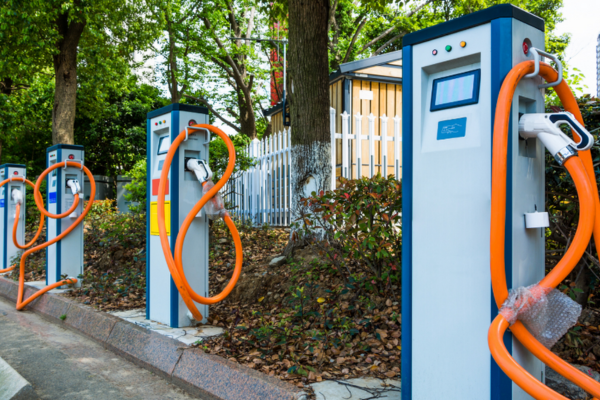
The availability and affordability of electric vehicles have been major factors contributing to the acceleration of the electric vehicle revolution. In recent years, there has been a significant increase in the number of electric vehicle models available on the market, catering to various consumer preferences and needs.
Leading automotive manufacturers have recognized the growing demand for electric vehicles and have invested heavily in research and development to expand their electric vehicle offerings. This has resulted in a wider range of options, from compact city cars to spacious SUVs, ensuring that there is an electric vehicle suitable for every lifestyle.
Government incentives and subsidies have also played a significant role in promoting the affordability of electric vehicles. Many countries around the world have implemented policies to encourage the adoption of electric vehicles, such as tax credits, rebates and grants. These incentives help offset the initial purchase price of electric vehicles, making them even more attractive to consumers.
The future of transportation is rapidly evolving, and at the forefront of this revolution are electric vehicles (EVs). With advancements in technology and increasing concerns about climate change and air pollution, the world is accelerating towards future powered by electric vehicles.
With their environmental benefits, technological advancements, and government support, electric vehicles are set to revolutionize the way we travel, making our roads cleaner, quieter, and more sustainable. Embracing this charged future will not only benefit our planet but also contribute to a more efficient and enjoyable transportation system after all.
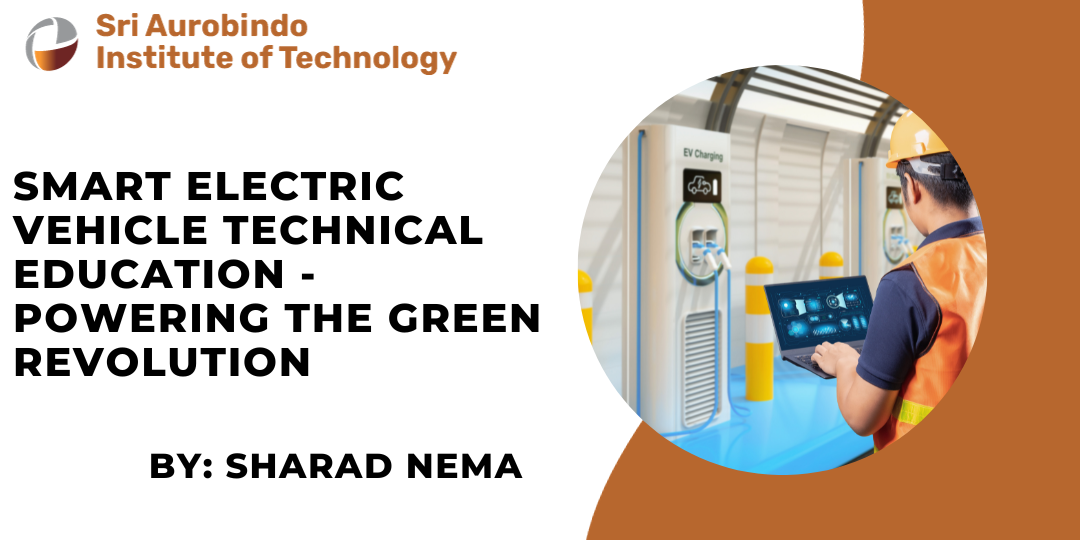
The automotive landscape is witnessing an unprecedented shift, with electric vehicles (EVs) heralding a new era of sustainable transportation.

Electronics engineering in India has transformed from a nascent sector to one of the most dynamic and promising fields in recent years. This...

The Internet of Things (IoT) is not just a buzzword; it's a revolutionary technology that's reshaping our world. With its ability to connect billions...